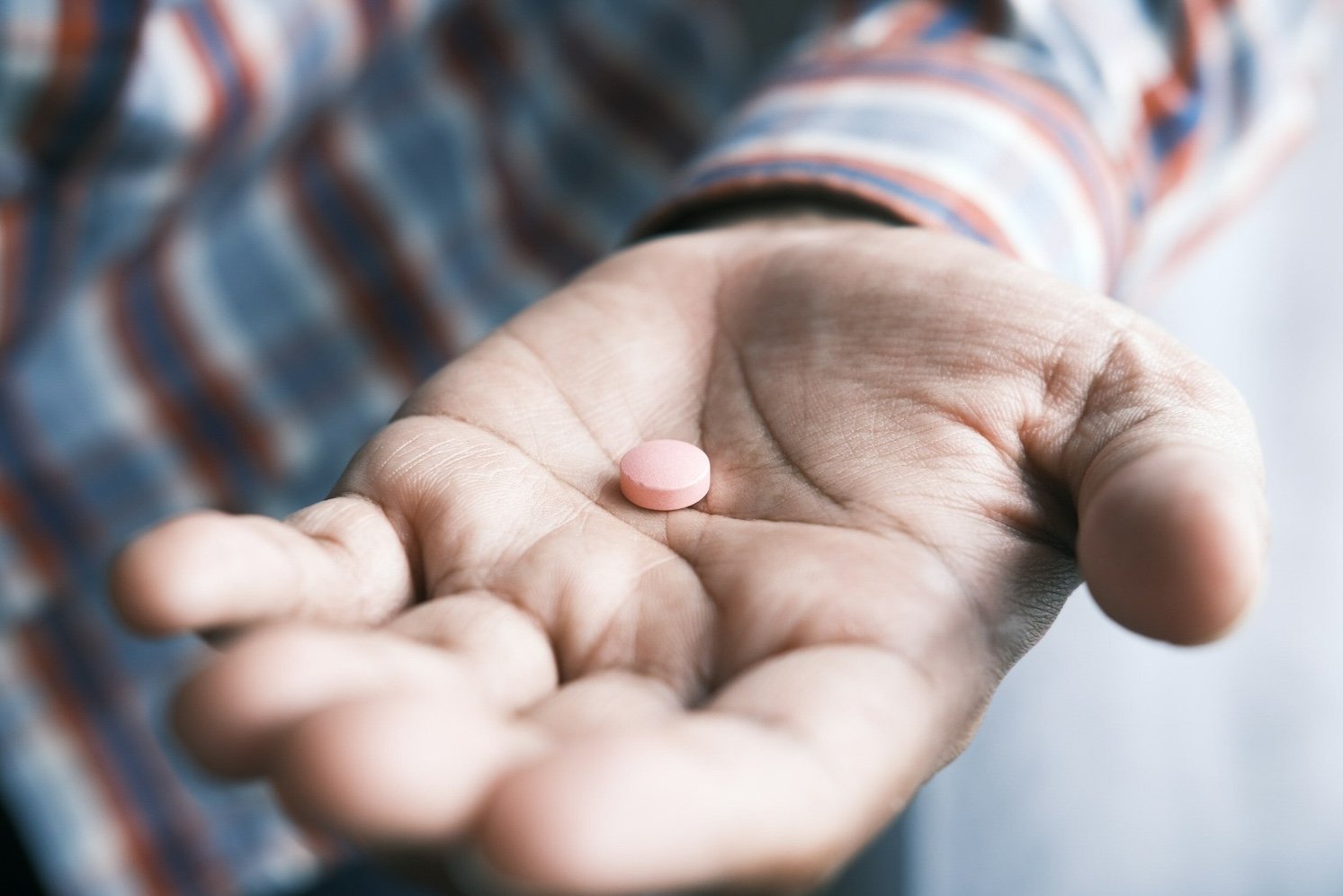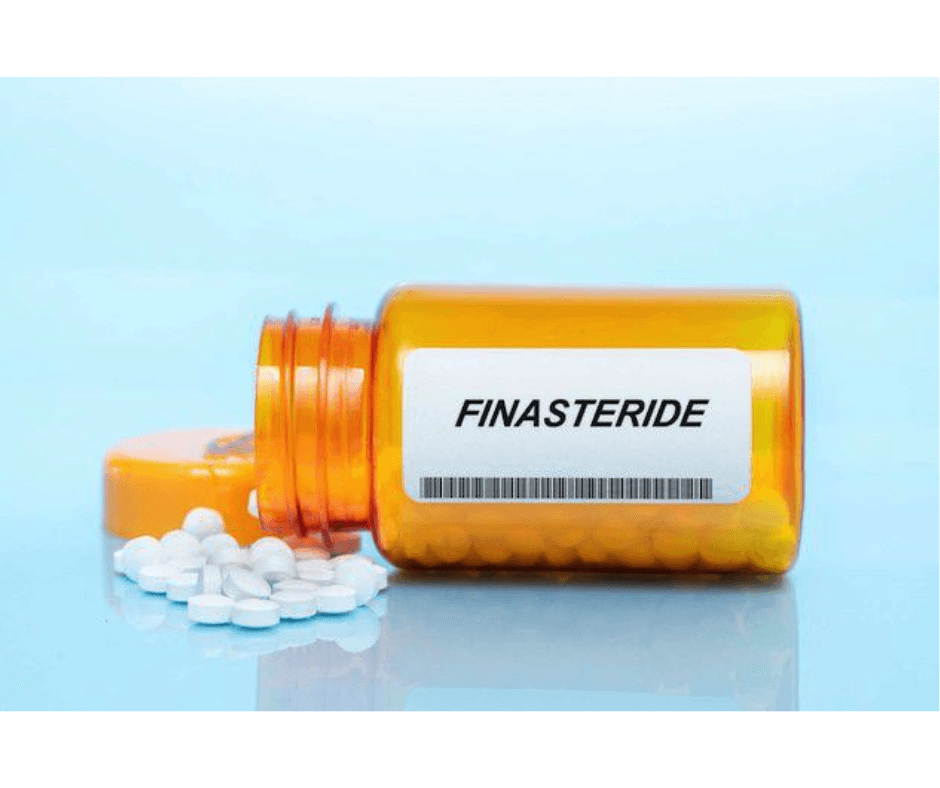Oral DHT Blockers Explained: Benefits and Options
Dutasteride
Dutasteride, also known as Avodart, is a medication used to treat benign prostatic hyperplasia (BPH), which causes prostate enlargement in men. It may also be prescribed off-label for treating androgenetic alopecia (AGA), otherwise known as male pattern baldness. Dutasteride is one of the best prescription drug hair loss treatments for male pattern hair loss because it can effectively slow down hair loss in men. Dutasteride is classified as a 5-alpha-reductase inhibitor. Dutasteride prevents testosterone, a male sex hormone, from converting to dihydrotestosterone (DHT), the hormone responsible for male pattern baldness. The administration of 5-alpha-reductase inhibitors can effectively block DHT from reaching the hair follicles, which stops them from miniaturizing (i.e. shrinking and making it harder for hair to grow). The oral capsule dose is typically 0.5 mg.
How does Dutasteride work?
Using oral dutasteride for hair loss is an effective treatment because dutasteride blocks the action of an enzyme called 5-alpha-reductase, which prevents your body from converting testosterone into an androgen hormone called dihydrotestosterone (DHT). DHT promotes male sex characteristics like facial and body hair and causes hair thinning in genetically predisposed adults.
The hair follicles in the hairline and the vertex/crown area undergo miniaturization, leading to a receding hairline and a bald spot on the crown. If not treated, this progressive hair loss may continue through the years and potentially affect all of the healthy hair on top of your head while sparing the sides and back.
Dutasteride stops the production of DHT by over 90%, which helps to prevent, slow down, and even reverse hair loss in people with male pattern baldness. This means that using dutasteride for hair regrowth and to prevent further hair loss is one of the most effective non-surgical treatments for hair loss in men. Depending on the individual, dutasteride can take three to six months to show its first effects and it takes about one year of taking dutasteride before the impact on preventing hair loss and re-growing hair can be accurately assessed
Is Dutasteride Safe for Hair Loss?
Study data show that dutasteride is generally safe and well-tolerated, even at the higher doses used to treat BPH. Side effects of dutasteride are very rare, less than 1% of patients, and are typically transient. Rare side-effects can include erectile dysfunction, decreased libido (sex drive), ejaculation problems, breast enlargement or tenderness, feeling depressed, testicular swelling, and pain. Dutasteride may cause a severe allergic reaction in some individuals, resulting in a rash and swelling of the face, tongue, or throat.
Is Dutasteride better than Finasteride?
While both medications are effective at treating hair loss and stimulating hair growth, there’s some evidence that dutasteride may be slightly more effective if you want to regrow hair. In a 2014 study published in the Journal of the American Academy of Dermatology, researchers compared finasteride and dutasteride in 917 men between 20 and 50 at various stages of male pattern baldness. The researchers found that men who took dutasteride had thicker hair and a higher average target area hair count than those who used finasteride. Side effects were similar among both groups.
Will Dutasteride work if Finasteride does not?
The ability of these medications to prevent hair loss and regrow hair may vary from person to person because not everyone responds in the same way. Some patients respond to dutasteride but not finasteride. Additionally, some men who have been using finasteride for more than five years and whose hair thinning returned after a period of improvement may benefit from dutasteride.
Finasteride
Dutasteride, also known as Avodart, is a medication used to treat benign prostatic hyperplasia (BPH), which causes prostate enlargement in men. It may also be prescribed off-label for treating androgenetic alopecia (AGA), otherwise known as male pattern baldness. Dutasteride is one of the best prescription drug hair loss treatments for male pattern hair loss because it can effectively slow down hair loss in men. Dutasteride is classified as a 5-alpha-reductase inhibitor. Dutasteride prevents testosterone, a male sex hormone, from converting to dihydrotestosterone (DHT), the hormone responsible for male pattern baldness. The administration of 5-alpha-reductase inhibitors can effectively block DHT from reaching the hair follicles, which stops them from miniaturizing (i.e. shrinking and making it harder for hair to grow). The oral capsule dose is typically 0.5 mg.
Will Finasteride Regrow Hair?
Finasteride is able to stop further hair loss in this way in over 95% of men that take it. 66% of patients will achieve moderate finasteride hair regrowth and 5% will achieve marked finasteride regrowth. Hair regrowth from finasteride may be possible in some patients. As finasteride is most effective on the vertex scalp, finasteride crown regrowth is more commonly seen than that of the temporal regions or frontal scalp.
Finasteride hair loss treatments should be continued for at least 12 months to assess its full effect. Long-term studies have found that the patient’s finasteride results after 1 year may predict its effectiveness going forward. Patients who fail to respond in the first year are likely to be non-responders in the long term too. Finasteride needs to be continued indefinitely to maintain efficiency as it only works for as long as it is used.
What are the Side Effects of Finasteride?
Finasteride is generally well-tolerated. Rare side effects, less than 1%, associated with finasteride can include sexual dysfunction, such as low libido, erectile dysfunction, reduced ejaculatory volume and temporary reduction in sperm count. These sexual side effects typically resolve with finasteride discontinuation. When starting treatment, shedding while using finasteride is sometimes reported. This can present similarly to hair loss, which may seem as though it is caused by finasteride. While taking finasteride may cause hair shedding a few weeks after beginning treatment, this is caused by the reactivation of the dormant hair follicles and is actually a positive sign that finasteride works.
Request an Appointment
Fill out the form below to request an appointment


